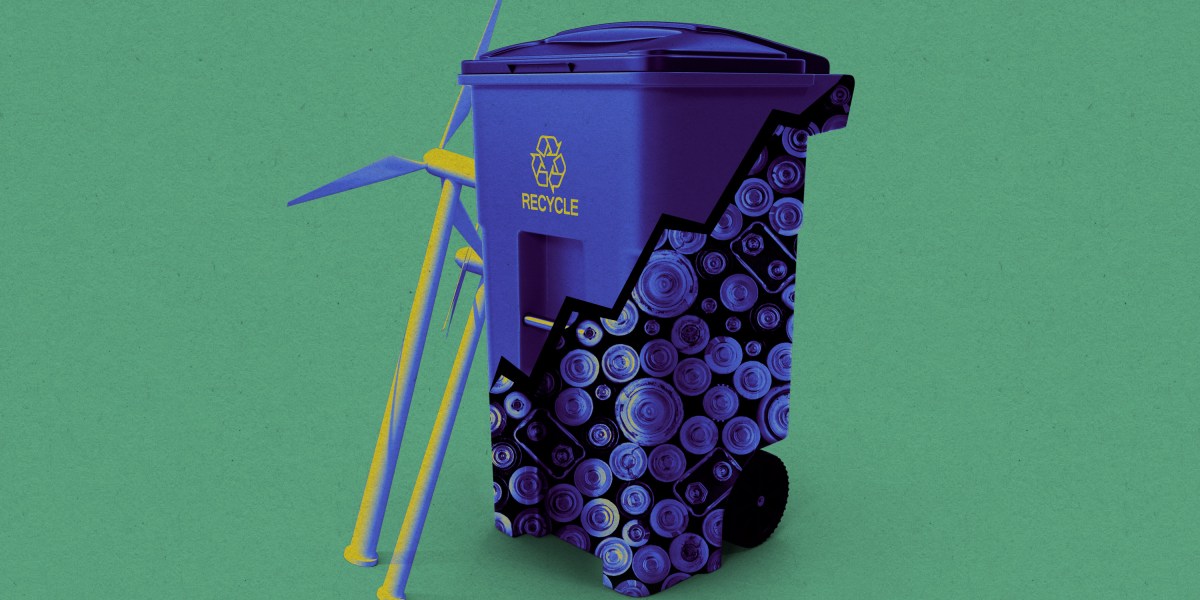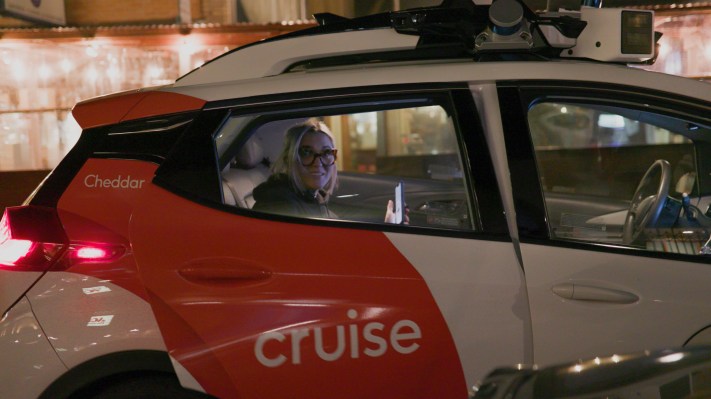The Download: recycling’s role, and tidying robots
This is today’s edition of The Download, our weekday newsletter that provides a daily dose of what’s going on in the world of technology.
Why recycling alone can’t power climate tech
The potential to use old, discarded products to make something new sounds a little bit like magic. This is why, in some cases at least, recycling is going to be a crucial tool for climate technology.
But there are massive challenges ahead in material demand for climate technologies, and unfortunately, recycling alone won’t be enough to address them. Our climate reporter Casey Crownhart has taken a look at why recycling isn’t always the answer—and what else might help instead. Read the full story.
This story is from The Spark, our weekly newsletter covering climate technology. Sign up to receive it in your inbox every Wednesday.
This robot can tidy a room without any help
The news: A new robotic system called OK-Robot could train robots to pick up and move objects in settings they haven’t encountered before. A robot running the system, which uses publicly-available AI models, was able to pick up and move objects around a room with an 58.5% success rate—rising to 82% in rooms that were less cluttered.
Why it matters: While robots may easily complete tasks like these in a laboratory, getting them to work in an unfamiliar environment is a real challenge. OK-Robot could help to plug the gap between rapidly improving AI models and actual robot capabilities, as it doesn’t require any additional training. Read the full story.
—Rhiannon Williams
If you’re interesting in reading more about home robots, why not check out:
+ Here’s why everyone’s getting excited about household robots again.
+ This new system can teach a robot a simple household task within 20 minutes. The Dobb-E domestic robotics system was trained in real people’s homes and could help solve the field’s data problem. Read the full story.
+ Watch this robot cook shrimp and clean autonomously. Even cheap hardware can perform complex tasks, and AI is helping robots get smarter still. Read the full story.
Check out the new MIT Technology Review app
MIT Technology Review’s new app brings our trusted journalism and expert insights right to your fingertips, ensuring you’re always at the forefront of breakthrough innovations.
Our redesigned app provides a user-friendly interface with the ability to save favorite articles and search trending topics—and explore all our exclusive technology coverage along with our trending daily newsletters. Check it out!
The must-reads
I’ve combed the internet to find you today’s most fun/important/scary/fascinating stories about technology.
1 Mark Zuckerberg apologized to families harmed by social media
Under some duress, during a Senate grilling. (WP $)
+ X boss Linda Yaccarino acknowledges that the platform needs more moderators. (Wired $)
+ TikTok’s Singaporean CEO was grilled at length, but not about child safety. (Motherboard)
+ Dramatic moments were in plentiful supply during the hearing. (NY Mag $)
+ Child online safety laws will actually hurt kids, critics say. (MIT Technology Review)
2 Autonomous car firm Cruise is hemorrhaging money
To the tune of almost $3.5 billion last year alone. (WP $)
+ What’s next for robotaxis in 2024. (MIT Technology Review)
3 Hackers spied on critics of Jordan using NSO Group’s spyware
In a concerted campaign targeting journalists, activists, and lawyers. (Bloomberg $)
4 AI startups are putting themselves up for sale
They’re incredibly expensive to run, and increased competition has small businesses clamoring to be acquired. (The Information $)
+ One growing startup has ambitions of challenging Google’s search dominance. (NYT $)
+ Make no mistake—AI is owned by Big Tech. (MIT Technology Review)
5 Amazon could soon be liable for the safety of third-party products
A proposed US government order could reclassify it from a retailer to a distributor. (WSJ $)
6 Ovaries may offer clues on how to extend our lifespans
Listen up, longevity bros. (FT $)
+ Inside the billion-dollar meeting for the mega-rich who want to live forever. (MIT Technology Review)
7 Product placement is getting an AI-powered makeover
It’s a sneaky new way of getting products in front of eyeballs outside of traditional ads. (NYT $)
+ TikTok could be about to lose a major chunk of its music catalog. (Wired $)
8 Life is imitating art for Ukraine’s video game makers
Apocalyptic survival game Stalker 2: Heart of Chernobyl has a new resonance for its creators. (The Guardian)
9 The Sun’s magnetic poles are about to reverse 
And communication satellites and our energy grid back on Earth is at risk of disruption. (Vox)
+ LED lights are contributing to a whole lot of light pollution. (The Atlantic $)
10 How to tell if we’re living in a simulation or not
Simulated and fake are not the same thing. (Ars Technica)
Quote of the day
“Your product is killing people.”
—US Senator Josh Hawley rounds on Facebook boss Mark Zuckerberg during a Senate hearing on child safety, the New York Times reports.
The big story
Government technology is famously bad. It doesn’t have to be.
October 2023
It’s a reality of politics that is often overlooked: once a law is passed, it needs to evolve from an idea into a plan with a budget and staff, and from there it needs to actually reach the lives of millions of people. Moving from policy to implementation has always been a hard part of governing. Today it’s easy to assume technology can make it easier. But is that actually true?
New York City is something of a test lab for strategies to confront some big problems that plague the modern state. And it is finding that sometimes the solutions are surprisingly low-tech. Read the full story.
—Tate Ryan-Mosley
We can still have nice things
A place for comfort, fun and distraction in these weird times. (Got any ideas? Drop me a line or tweet ’em at me.)
+ Crime Pays But Botany Doesn’t is a fantastic name for a YouTube channel.
+ It’s called the world’s greatest stretch for a reason.
+ Road tripping in Saudi Arabia looks suitably surreal.
+ Stop putting it off: here’s how to declutter your home, room by room.
+ What can’t The Bear actor Jeremy Allen White live without? Temporary tattoos, apparently.




